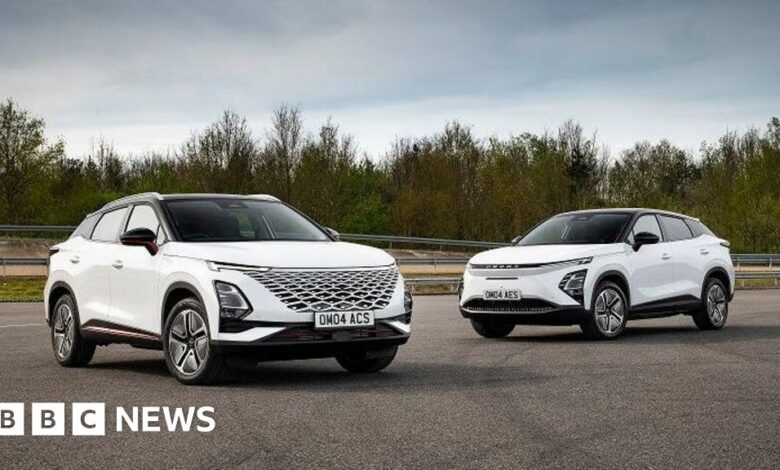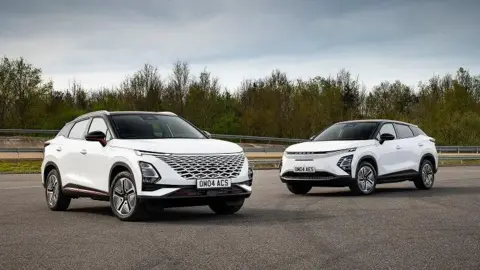Chinese giant Chery could make cars in the UK

 Chery
CheryChinese car giant Chery is considering manufacturing cars in the UK, according to a senior executive.
The head of its UK branch, Victor Zhang, told the BBC it was “only a matter of time” before the company made a final decision.
Chery, which is now preparing to produce cars in Spain, is determined to take a “localized” approach to the European market, he said.
Mr Zhang denied that the company’s exports benefited from unfair subsidies.
Chery, founded in 1997, is one of China’s largest automobile companies. It is currently the country’s largest vehicle exporter, but has ambitious plans to expand further.
To drive that plan, the company has created two new brands focused entirely on the international market: Omoda and Jaecoo.
Last month, Omoda officially launched in the UK. It has started selling a popular SUV, the Omoda 5, in both electric and petrol versions.
The company has built a network of 60 dealers and hopes to have more than 100 by the end of this year.
But it is not the only Chinese manufacturer that sees the UK market as potentially lucrative.
BYD, which is competing with Tesla for the title of world’s largest electric carmaker, has also opened dozens of dealerships here.
SAIC already has a strong foothold in the UK, selling cars under the classic British brand MG.
‘Time issue’
Cars sold in Europe are currently made at Chery’s manufacturing base in Wuhu, eastern China. But that situation is expected to change.
The company has a deal with Spanish EV Motors to build the Omoda and Jaecoo models at a former Nissan plant in Barcelona, but it wants to set up other facilities as well.
Earlier this year, the company said the UK could also be a candidate for an assembly plant. That option remains on the table.
“Barcelona, this is what we have committed to,” Mr. Zhang explained.
“For the UK, we are also evaluating. Frankly, we are open to all options and opportunities.
“So I think it’s just a matter of time. If everything is ready, we will do it.”
A Department for Business spokesman described the UK’s automotive industry as “thriving”.
“While we cannot speculate on commercial investment decisions, we welcome Chery International’s launch of Omoda in the UK and would positively evaluate any new investment in the UK,” they said.
But the UK is not the only country on Chery’s list. For example, they have also been in talks with the Italian government about setting up production in Italy.
Mr Zhang denied the decision would depend on which country could offer the best deals.
“For such a large investment project, a combination of many factors is needed,” he said.
“It’s not just government policies or incentives. You also need to look at the market; education, because you need talented people like engineers and factory workers; there’s also the supply chain, logistics.
“So there will be many factors that influence our final decision.”
Pressure to set up manufacturing facilities in Europe has increased since July, when the EU imposed high tariffs on imports of electric vehicles from China.
Brussels said this was done because carmakers in China benefited from “unfair subsidies” that allowed their cars to be sold abroad at very low prices, undermining domestic producers. China accused the EU of trade protectionism.
By manufacturing in Europe, Chery will avoid paying those tariffs. But Mr. Zhang insists his company is committed to local production.
“We are not trying to use any unfair methods,” he stressed.
“We want to adapt to the local market and provide the best products, using the best agents. Localization is the only strategy for the long term,” he said.
The UK has yet to say whether it will impose similar measures on its own tariffs.
China’s domestic auto market is huge, with more than 30 million vehicles sold each year.
The company’s share of the global market has also been significant, with around 5 million vehicles exported last year. That was up 64% from the previous year.
In the UK, Chinese car brands still account for a relatively small proportion of total car sales, around 5%.
But longtime automakers fear that figure could rise rapidly, with the prices Chinese brands are expected to charge playing a major role.


